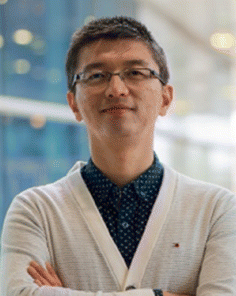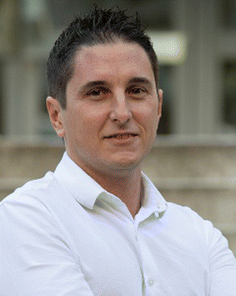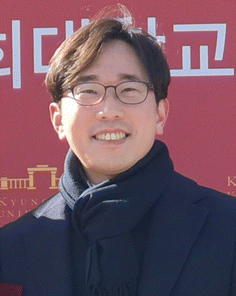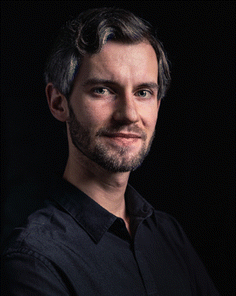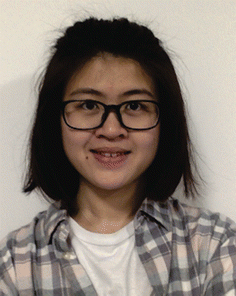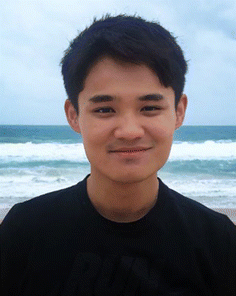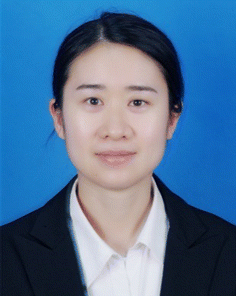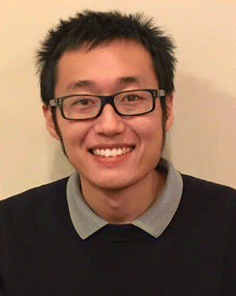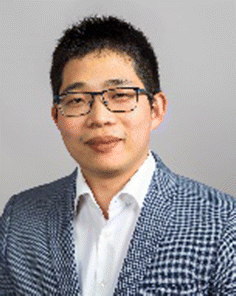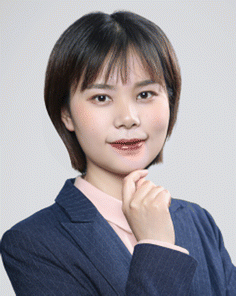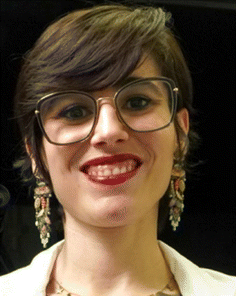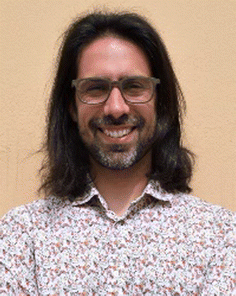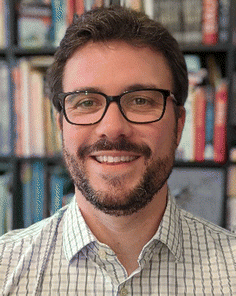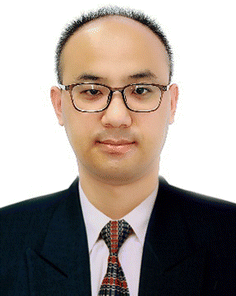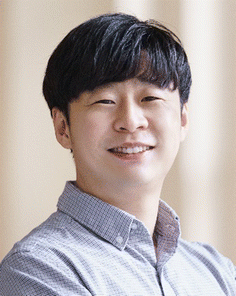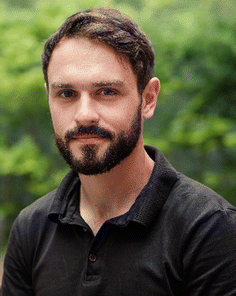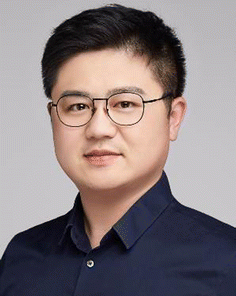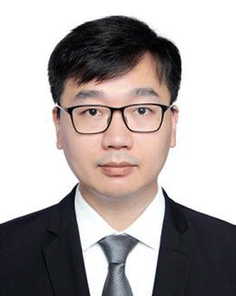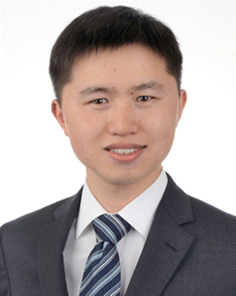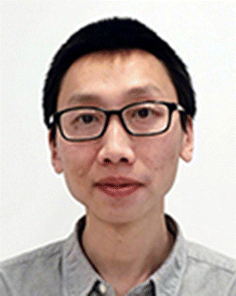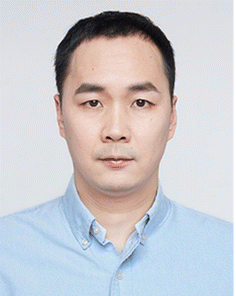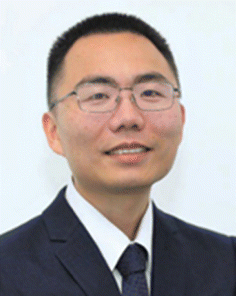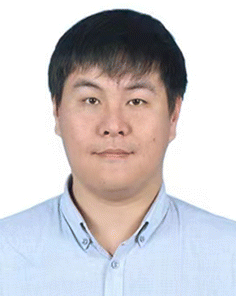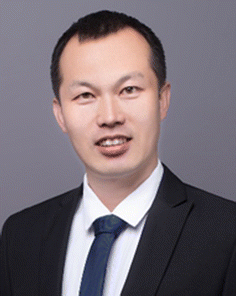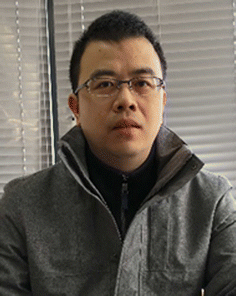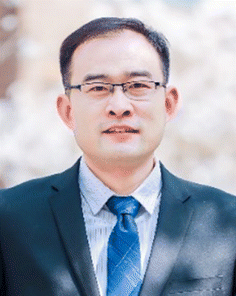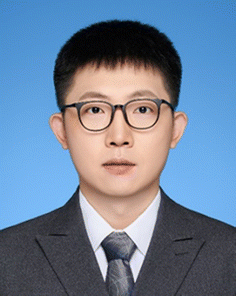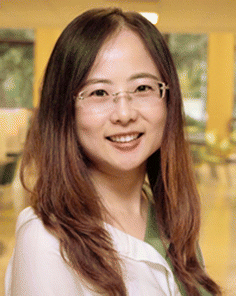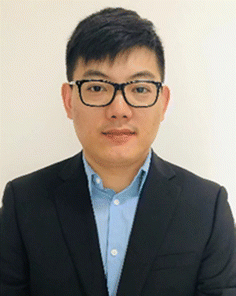Contributors to the Emerging Investigators 2023 issue
Abstract
Our 2023 Emerging Investigators themed issues gather some of the best research being conducted by scientists in the early stages of their independent career. Each contributor was recommended as carrying out work with the potential to influence future directions in materials chemistry. Congratulations to all of the researchers featured, we hope you enjoy reading this issue.
Huanyu Cheng earned a PhD degree from Northwestern University in 2015 and a bachelor's degree from Tsinghua University in 2010. He is the James L. Henderson, Jr. Memorial Associate Professor of Engineering Science and Mechanics at Penn State University. Dr Cheng has worked on standalone stretchable device systems for biomedicine with over 140 peer-reviewed publications, and his work has been recognized through the reception of numerous awards. He also serves as an associate editor for the IEEE Internet of Things Journal, Computers in Biology and Medicine, and as a reviewer for over 250 international journals.
His contribution to the 2023 Journal of Materials Chemistry C Emerging Investigators issue can be read at DOI: https://doi.org/10.1039/D3TC01666H.
Ignasi Fina is a tenured scientist at the Institut de Ciència de Materials de Barcelona from Consejo Superior de Investigaciones Científicas (ICMAB-CSIC). In 2012, he obtained his PhD studying single-phase and composite multiferroic films. He worked as a Beatriu the Pinós Fellow at the Max Planck Institute of Microstructure Physics (Germany). He was also a Juan de la Cierva and Ramon y Cajal Fellow and he was awarded with the first prize as a postdoctoral investigator at the XXXVI meeting of the Real Sociedad Española de Física. He is the corresponding author of more than 50 publications and over 120 as an author. His current research interests mainly focus on new ferroelectric materials for non-volatile memory devices.
His contribution to the 2023 Journal of Materials Chemistry C Emerging Investigators issue can be read at DOI: https://doi.org/10.1039/D3TC01145C.
Woojin Jeon received his Bachelor's and Master's degrees at the Department of Materials Science and Engineering at the Korea Advanced Institute of Science and Technology (KAIST) in 2005 and 2007, respectively, and his PhD in the same department at Seoul National University (Korea) in 2015. His current research interests focus on semiconductor materials, devices, and processing, drawing from his extensive research experiences in domestic and foreign research institutes such as KIST and CNRS/CEA-LETI, as well as in industries such as SK Hynix Inc. and Samsung Advanced Institute of Technology. Currently, he serves as an associate professor in the Department of Advanced Materials Engineering for Information and Electronics at Kyung Hee University in Korea.
His contribution to the 2023 Journal of Materials Chemistry C Emerging Investigators issue can be read at DOI: https://doi.org/10.1039/D3TC00704A.
Simon Kahmann is a researcher in the StranksLab at the Department of Chemical Engineering and Biotechnology, and the Cavendish Laboratory of the University of Cambridge. He holds a Leverhulme Early Career Fellowship and coordinates the spectroscopy sub-group of the StranksLab. Simon's work focuses on novel semiconductors for application in optoelectronics with a particular interest in nanomaterials and chiral compounds. Previously, he received a double-doctorate from the University of Groningen and the Friedrich-Alexander University Erlangen-Nuremberg under the supervision of Profesor Loi and Professor Brabec for his studies on organic semiconductors, colloidal quantum dots, and carbon nanotubes. Privately, Simon enjoys a good long run and the occasional game of chess.
His contribution to the 2023 Journal of Materials Chemistry C Emerging Investigators issue can be read at DOI: https://doi.org/10.1039/D2TC04406D.
Cheryl Suwen Law completed her Bachelor’s and PhD in chemical engineering at the University of Adelaide in 2014 and 2019, respectively. She is currently a Future Making Research Fellow at the Institute of Photonics and Advanced Sensing (IPAS) and School of Chemical Engineering at the University of Adelaide. Her main research focus is the development of optical and iontronic sensing systems based on nanoporous anodic alumina for the detection of environmental pollutants and biological biomarkers.
Her contribution to the 2023 Journal of Materials Chemistry C Emerging Investigators issue can be read at DOI: https://doi.org/10.1039/D3TC01735D.
Kerui Li is currently a professor at the State Key Lab for Modification of Chemical Fibers and Polymer Materials (SKLFPM) and the College of Materials Science and Engineering, Donghua University. He received his PhD in materials science and engineering from Donghua University. After that, he worked as a research fellow in the Department of Chemical and Biomolecular Engineering at the National University of Singapore for three years. Recently, his research interests include light modulation/conversion from solar light to infrared radiation for smart clothing and soft robotics.
His contribution to the 2023 Journal of Materials Chemistry C Emerging Investigators issue can be read at DOI: https://doi.org/10.1039/D3TC01142A.
Zhenhua Lin received her PhD from the National University of Singapore in 2013. After graduation, she was a Research Fellow in the Electrical and Computer Engineering Department at the National University of Singapore from 2013 to 2014. She then joined Xidian University, where she is currently a professor. Her research interests include perovskite and metal oxide materials, electronic devices (transistor and RRAM) and optoelectronic devices (solar cell, photodetector, and X-ray detector).
Her contribution to the 2023 Journal of Materials Chemistry C Emerging Investigators issue can be read at DOI: https://doi.org/10.1039/D3TC01028G.
Hanzhe Liu is an assistant professor at the Department of Chemistry, Purdue University. Previously, he received postdoctoral training at the California Institute of Technology with Professor Cushing. He received his PhD in 2019 under the supervision of Professor Reis from Stanford University, and his BSc from the University of Science and Technology of China in 2013. His current research interests include using ultrafast optical and core-level spectroscopy to understand complex material dynamics.
His contribution to the 2023 Journal of Materials Chemistry C Emerging Investigators issue can be read at DOI: https://doi.org/10.1039/D3TC01526B.
Zhenpin Lu is currently an assistant professor in the Department of Chemistry at the City University of Hong Kong. He received his doctoral degree in organic chemistry at Justus-Liebig University Giessen, Germany. Supported by DFG (Deutsche Forschungsgemeinschaft)-fellowships, he conducted postdoctoral research at the University of Cambridge (UK) and the University of Würzburg (Germany). Before joining CityU, he worked as a research assistant professor in the Department of Chemistry at the Chinese University of Hong Kong. His research interests include the development of organoboron compounds for organic synthesis, small molecule activation, catalysis, and materials science.
His contribution to the 2023 Journal of Materials Chemistry C Emerging Investigators issue can be read at DOI: https://doi.org/10.1039/D3TC01009K.
Wen Lv is currently working in the State Key Laboratory of Organic Electronics and Information Displays, School of Chemistry and Life Sciences, Nanjing University of Posts and Telecommunications. She obtained her BSc degree in materials science from Wuhan University of Science and Technology in 2012; and PhD in optical engineering from the Nanjing University of Posts and Telecommunications in 2017 under the supervision of Professor Huang and Professor Zhao. After conducting postdoctoral research at the University of Hong Kong with Professor Wang, she started her independent career at Nanjing University of Posts and Telecommunications in 2021. Her research interests focus on the long-lived triplet excited state of photochemical molecules, photochemical reactions under high-energy radiations and stimuli-responsive materials.
Her contribution to the 2023 Journal of Materials Chemistry C Emerging Investigators issue can be read at DOI: https://doi.org/10.1039/D3TC00761H.
Eleonora Macchia is a tenure-track Assistant Professor at Department of Pharmaceutical Sciences at the University of Bari and Head of Research at Åbo Akademi University. She is ERC Starting Grant 2021 grantee, as PI of the project NoOne. She has been Senior Researcher at Åbo Akademi, as PI of the project ProSiT funded by Academy of Finland. Since March 2019, she has been project researcher at Åbo Akademi University. She received her PhD in Chemical Sciences summa cum laude in 2018 from the University of Bari and her Master's degree in Physics. She is also strongly committed to the role of model for younger women scientists.
Her contribution to the 2023 Journal of Materials Chemistry C Emerging Investigators issue can be read at DOI: https://doi.org/10.1039/D3TC01123B.
Daniele Mantione is an organic/materials chemist, he received his BSc and MSc degrees in chemistry at the University of Pavia, Italy, and his PhD at the University of the Basque Country in Spain. His postdoctoral research activity was carried out at IBM Almaden, CA, USA, the University of Warwick, UK and the University of Bordeaux, France. Then he moved back to Spain where he started to work at POLYMAT as an Ikerbasque Fellow and Ramon y Cajal Fellow. His research interests include conductive polymers, innovative monomer/polymers synthesis and organic chemistry.
His contribution to the 2023 Journal of Materials Chemistry C Emerging Investigators issue can be read at DOI: https://doi.org/10.1039/D3TC01128C.
Bob C. Schroeder pursued his doctoral studies under Professor McCulloch FRS at Imperial College London, completing his PhD in 2013. As a Postdoctoral Research Associate (PDRA) at Stanford University (2014), he worked with Professor Bao on self-healing conjugated polymers for skin-like electronics. In 2016, he moved to Queen Mary University of London, before relocating his research group to the University College London (2018), where he is currently an associate professor in organic chemistry and UKRI Future Leaders Fellow (2020). His research focuses on novel organic semiconductors for thermoelectric power generation and healthcare applications, particularly integrating conjugated materials into robust skin-wearable sensors.
His contribution to the 2023 Journal of Materials Chemistry C Emerging Investigators issue can be read at DOI: https://doi.org/10.1039/D3TC01148H.
Yongqiang Shi is a professor at the School of Chemistry and Materials Science, Anhui Normal University. Before that, he carried out research as a research assistant at Southern University of Science and Technology in 2015–2020 under the supervision of Professor Xugang Guo. He received his PhD from Southwest Petroleum University in 2020. He worked as a “Hong Kong Scholars Program” postdoctoral fellow in the group of Professor Zhang at the City University of Hong Kong. His research focuses on the design and synthesis of n-type polymers for organic thin-film transistors, polymer solar cells, perovskite solar cells, and organic thermoelectrics.
His contribution to the 2023 Journal of Materials Chemistry C Emerging Investigators issue can be read at DOI: https://doi.org/10.1039/D3TC02243A.
Kyoseung Sim has been an assistant professor in the Department of Chemistry at the Ulsan National Institute of Science and Technology (UNIST) since Spring 2020. He earned his PhD in materials science and engineering from the University of Houston in 2018, under the supervision of Professor Yu. Kyoseung's current research focuses on soft electronics, specifically organic semiconductors and their system-level applications. Outside of his professional life, he maintains a balanced lifestyle by engaging in various hobbies: these include attending live performances by independent singer-songwriters, building LEGO® creations, watching movies, listening to music, and reading books.
His contribution to the 2023 Journal of Materials Chemistry C Emerging Investigators issue can be read at DOI: https://doi.org/10.1039/D3TC01150J.
Szymon Sobczak, an adjunct professor at Adam Mickiewicz University, Poland, devotes his efforts to understanding pressure-induced transformations across a range of materials, from molecular crystals to MOFs and perovskites. His current research centers on the correlation between structural deformations and changes in physicochemical properties of materials, highlighting the significant role of pressure and varied-temperature conditions. His contributions to the field are marked by innovative approaches, such as developing a sustainable method for disulfide exchange replacing the conventional catalyst with pressure, and a protocol for obtaining kinetic polymorphs recoverable at ambient conditions. His investigations of the mechanical behavior of coordination polymers provides a new dimension to the design of flexible and transformable frameworks.
His contribution to the 2023 Journal of Materials Chemistry C Emerging Investigators issue can be read at DOI: https://doi.org/10.1039/D3TC01146A.
Meng Su is currently a professor at ICCAS and UCAS. He received his PhD in materials science from ICCAS in 2017. Then he conducted research as a postdoctoral fellow at ICCAS from 2017 to 2019. His research interests include nanomaterials and green-printing technology, printed multifunctional devices, nanophotonics, bio-manufacturing, and smart devices. He has published more than 90 research papers.
His contribution to the 2023 Journal of Materials Chemistry C Emerging Investigators issue can be read at DOI: https://doi.org/10.1039/D3TC01121F.
Xin Tang received his PhD from the City University of Hong Kong in 2017 supervised by Profesor King. After graduation, he became a postdoctoral researcher at the James Franck Institute, University of Chicago, in Professor Guyot-Sionnest's research group where he spent three wonderful years. In 2020, he became a professor at the School of Optics and Photonics, Beijing Institute of Technology. His research interests include multispectral/hyperspectral infrared detectors, colloidal quantum-dot focal plane array imagers, and functional photonic nanostructures.
His contribution to the 2023 Journal of Materials Chemistry C Emerging Investigators issue can be read at DOI: https://doi.org/10.1039/D3TC00066D.
Xiao-Ye Wang received his BSc degree from Nankai University in 2009 and obtained his PhD from Peking University in 2014 under the supervision of Professor Pei. From 2014 to 2019, he was a postdoctoral researcher and a Humboldt Fellow in the group of Professor Müllen at the Max Planck Institute for Polymer Research in Germany. In 2019, he moved to Nankai University to start his independent research as a professor of chemistry. His research focuses on organic and nanocarbon materials for optoelectronic applications.
His contribution to the 2023 Journal of Materials Chemistry C Emerging Investigators issue can be read at DOI: https://doi.org/10.1039/D3TC01520C.
Zhongrui Wang is an assistant professor with the Department of Electrical and Electronic Engineering at the University of Hong Kong (HKU). Prior to joining HKU, he received both a BEng (First-class honour) degree and PhD from Nanyang Technological University in Singapore. He did his postdoctoral research at the University of Massachusetts Amherst. His research interest lies in emerging memory based neuromorphic computing and machine learning.
His contribution to the 2023 Journal of Materials Chemistry C Emerging Investigators issue can be read at DOI: https://doi.org/10.1039/D3TC01126G.
Jieyun Wu is currently an associate professor in the School of Optoelectronic Science and Engineering, University of Electronic Science and Technology of China. He received his BS degree and PhD from Nankai University in 2008 and the Technical Institute of Physics and Chemistry (Chinese Academy of Sciences) in 2013, respectively. Then he worked with Professor Jen and Dr Luo on optical waveguide materials at the University of Washington (Seattle) and with Professor Chiang on integrated optical waveguide devices at the City University of Hong Kong. His research interests include hybrid integration of functional materials on optical waveguide/fiber devices for sensing and communications.
His contribution to the 2023 Journal of Materials Chemistry C Emerging Investigators issue can be read at DOI: https://doi.org/10.1039/D3TC01132A.
Yang Yang is currently a professor at Xiamen University. He received his BS degree in Chemistry from Xiamen University in 2007, and his PhD degree in Physical Chemistry from Xiamen University in 2014 under the supervision of Prof. Zhong-Qun Tian. His research interests focus on molecular behaviors at the solid/liquid interface, single-molecule characterization and manipulation, surface-enhanced Raman spectroscopy, and electrochemical micro/nano-manufacturing. He was funded by the National Excellent Young Scientist Fund and the Fujian Provincial Science Fund for Distinguished Young Scholars.
His contribution to the 2023 Journal of Materials Chemistry C Emerging Investigators issue can be read at DOI: https://doi.org/10.1039/D3TC02035E.
Tao Yu received his PhD from the University of Hong Kong and carried out postdoctoral studies under the supervision of Professor Yam. In 2015, he moved to Sun Yat-Sen University as an associate professor. In 2018, he obtained his current professor position at Northwestern Polytechnical University. His research interests focus on organic optoelectronic functional materials such as photochromic materials, mechanoluminescent materials, and phosphorescent materials.
His contribution to the 2023 Journal of Materials Chemistry C Emerging Investigators issue can be read at DOI: https://doi.org/10.1039/D3TC01093G.
Guodong Zhang is a full professor at the Institute of Crystal Materials, Shandong University. He received his PhD in 2012 under the supervision of Professor Tao at Shandong University. From 2013 to 2015, he worked on his postdoctoral research on solvo-thermal synthesis of novel chalcogenide crystals and LPE growth of novel nitride single crystals at Nanyang Technological University's Materials Science Division and the National Institute for Materials Science, respectively. His current research interests are focused on the growth of metal halide bulk single crystals for radiation detection and infrared detection applications.
His contribution to the 2023 Journal of Materials Chemistry C Emerging Investigators issue can be read at DOI: https://doi.org/10.1039/D3TC01085F.
Kaka Zhang was born in 1985 in Ningbo, Zhejiang Province, China. He received his BS degree in 2008 and PhD in 2013 from Fudan University under the supervision of Professor Chen, Professor Jiang and Professor Yao. From 2013 to 2019, he did his postdoctoral work at the University of Hong Kong with Professor Yam. In 2019, he was appointed as a principal investigator at the Shanghai Institute of Organic Chemistry, Chinese Academy of Sciences. His research interests include luminescent materials and macromolecular self-assembly.
His contribution to the 2023 Journal of Materials Chemistry C Emerging Investigators issue can be read at DOI: https://doi.org/10.1039/D2TC05261J.
Lei Zhang is a professor of Biomedical engineering at the Zhejiang University. Before beginning this position in 2021, Dr Zhang completed a three-year postdoctoral appointment in the Department of Materials Science & Engineering at National University of Singapore. He received his PhD in Chemical Engineering at Zhejiang University in 2013. Dr Zhang received the Hundred Talents Program in 2021. He is the author of more than 60 publications and 10 patents. His research interests are biocompatible/bio-sensitive organic conjugated polymers and micro-/nano scale soft materials for flexible bioelectronic devices and bionic tissue engineering.
His contribution to the 2023 Journal of Materials Chemistry C Emerging Investigators issue can be read at DOI: https://doi.org/10.1039/D3TC01988H.
Zhitao Zhang received his PhD in July 2017 from the Laboratory of Advanced Materials at Fudan University in China. After his studies, he then worked as a postdoc in the Department of Chemical Engineering at Stanford University in the US. In July 2022, he joined the School of Chemistry and Chemical Engineering at Shanghai Jiao Tong University as an associate professor. He has developed soft and stretchable electronic materials and devices for wearable and biomedical applications.
His contribution to the 2023 Journal of Materials Chemistry C Emerging Investigators issue can be read at DOI: https://doi.org/10.1039/D3TC01579C.
Ying Zhong is currently a professor at the School of Materials Science and Engineering at Harbin Institute of Technology at Shenzhen. She received her PhD from the University of California at San Diego in 2017. When she served as an assistant professor at the University of South Florida from 2019 to 2022, she secured three NSF grants, including the NSF CAREER Award. Ying specializes in innovations of manufacturing techniques through understanding and taking advantage of surface and interface behaviors. To address mask shortage problems during the COVID-19 pandemic, she developed an efficient technology for safe mask reuse. She also invented an ultra-fast electrostatic printing technique.
Her contribution to the 2023 Journal of Materials Chemistry C Emerging Investigators issue can be read at DOI: https://doi.org/10.1039/D3TC00558E.
Xiaolin Zhu has been an associate professor at the Shaanxi Normal University since December 2019. He received his BSc degree and PhD from Nanjing Tech University. After graduation, he worked as a postdoc at North Dakota State University, the New Jersey Institute of Technology, and San Diego State University. His research interests focus on the study of optoelectronic properties of supramolecular photo-functional materials, and their applications for photocatalysis.
His contribution to the 2023 Journal of Materials Chemistry C Emerging Investigators issue can be read at DOI: https://doi.org/10.1039/D3TC02375C.
| This journal is © The Royal Society of Chemistry 2023 |

